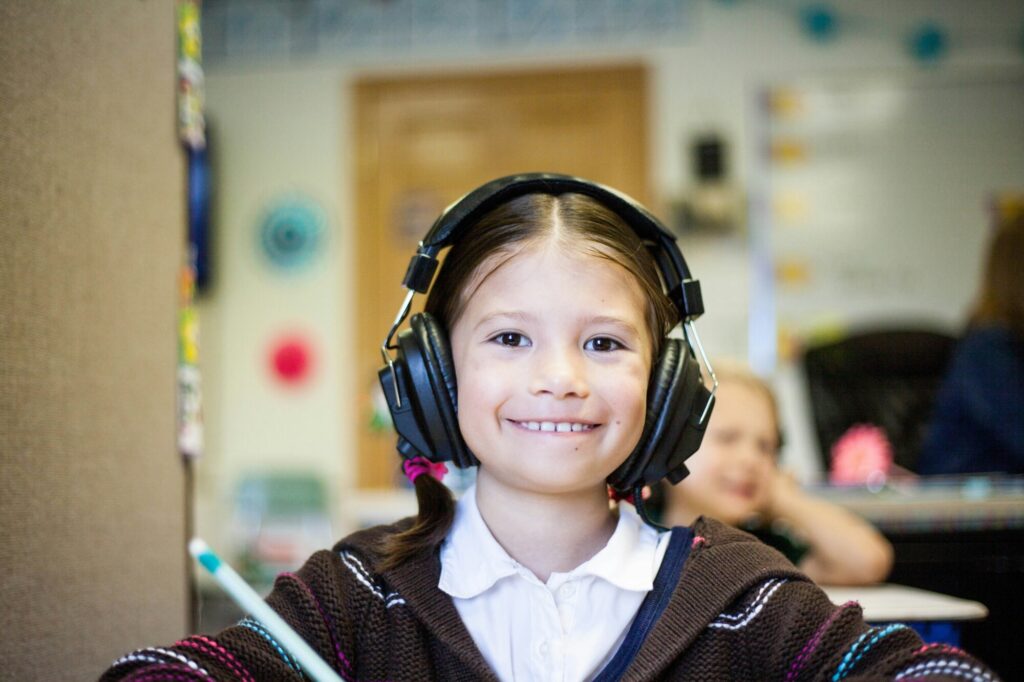
Reading together with a child improves their emotional competency
January 28, 2021
Freelance writer
With the COVID-19 pandemic forcing us indoors, it can be tempting to just sit our kids in front of a computer screen as we focus on working at home.
Although this is very convenient, too much screen time can be detrimental to kids, and in fact goes against guidelines set by the World Health Organization (WHO) regarding early childhood development.
In particular, WHO notes the importance of activities like storytelling as a way to bond with and foster emotional competency growth in children.
This recommendation isn’t without basis either, as scientists from Harvard University, the Massachusetts Institute of Technology, and the University of Pennsylvania published a study showing the growth that back-and-forth conversations can spark in children’s brains.
Why you should read with your kids
Dr. Erika Rasure, a professor leading Maryville University’s online business administration degree program and a specialist in transformative learning, has been working in this area of study for many years. In Rasure’s feature in Psychology Today, she highlights how children have a special way of deciphering the world around them, which should be developed as they age.
“Children view experiences with wonder and an eagerness to learn, rather than being bogged down by the self-imposed mental constraints of adulthood,” stated. She goes on to explain that, “Children are flexible, forgiving, and compassionate, and most of all, they expect the unexpected because no one has conditioned them otherwise.”
Indeed, a child’s unique worldview is key to helping them develop a strong sense of community, empathy, and emotional competency. Unlike adults who are shackled by preconceived social expectations, kids have an opportunity to make sense of the world through unburdened eyes. Parents, guardians, and educators can take advantage of this to mold them into kinder and more empathetic members of society.
Convinced yet? If not, here are a few more expert-backed reasons to switch some of your child’s screen time for a book.
It hones their social-emotional intelligence
A study on Preschoolers’ Mental-Emotional Conceptualization and Social Understanding found that reading books rich in mental and emotional vocabulary allowed children to better connect their thoughts and emotions, identify social problems, and propose solutions to these problems.
Guardians can further facilitate the development of emotional competency by leading regular story read-along sessions with your kids. This gives parents and guardians an opportunity to discuss social-emotional issues that might be difficult to talk about in other settings. This helps kids process the different emotions they encounter in stories by making them active participants in the conversation.
It expands their view of the world
Nigerian writer Chimamanda Ngozi Adichie warns parents about “the single story” and its pitfalls, including perpetuating harmful stereotypes of marginalized communities due to the lack of representation and diversity in media.
This is dangerous for an audience as impressionable as young children, as it pigeonholes people dissimilar to themselves into one-dimensional cardboard cutouts.
In order to curb the impact of “single story” narratives, guardians can supplement deficiencies in our society and/or education system by exposing kids to diverse cultures, experiences, and backgrounds outside of their norm.
Shared book reading is one great way to broaden a child’s perspective. This refers to reading along with them, and actively engaging them with the text to create an interactive learning experience that will help draw meaning and connection from the book.
It boosts their brainpower
Children who read more have more active brains.
Research published in the online journal Acta Paediatrica showed that a more stimulating home literacy environment led to more integrated sections of brain white matter, specifically in the parts that process visual imagery, language, and working memory.
In other words, kids who come from homes with lots of books, engage in more shared reading time with their caregivers, therefore are more likely to have a leg up in terms of cognitive function and emotional competency.
Which books can my children and I read?
Read books from a variety of authors and illustrators with different perspectives and worldviews. Seek out books with protagonists from cultural contexts both similar and different to your own. Here are a few great reads:

Mae Among the Stars by Roda Ahmed
A story about the childhood of real-life astronaut Mae Jemison, the first African American woman to travel into space. This is an inspiring tale for young girls who might want to pursue a career in the hard sciences.
 Thank You, Omu! by Oge Mora
Thank You, Omu! by Oge Mora
A beautifully illustrated book about a woman named Omu who ends up giving every last bit of her stew to unexpected visitors, but whose generosity is returned tenfold at the end of the story.
 Sulwe by Lupita Nyong’o
Sulwe by Lupita Nyong’o
Penned by Kenyan-Mexican Hollywood actress Lupita Nyong’o, this heartwarming book follows the titular character Sulwe (meaning star in Luo) and her journey towards accepting the beauty of her own skin color.
 A Big Mooncake for Little Star by Grace Lin
A Big Mooncake for Little Star by Grace Lin
A tale about the moon, and a mischievous little girl who keeps taking bites out of it every night. The book is inspired by the author’s favorite holiday, the Mooncake or Mid-Autumn Festival which is celebrated in many Asian cultures.
Additionally, build your child’s emotional competency with a vast selection of free children’s books online, which is helpful if you’re on a tight budget. For starters, check out Reading Partners’ recommendations for great stories and other literacy resources for parents and caregivers.
Have fun reading!
Article written for the exclusive use of staging.readingpartners.org





